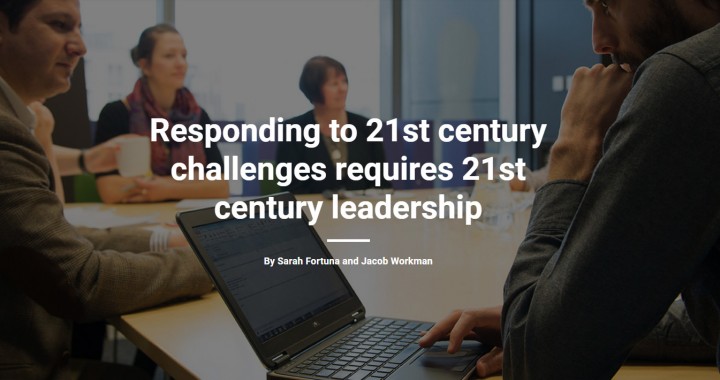In 1995, the Karpin Report delivered comprehensive insight into Australia’s workplace leadership and provided recommendations on how to best develop business leaders. The report recognised the need for a robust ‘enterprise culture’ and spoke of ‘leadership competencies’ beyond traditional management. Twenty years on, how are we going?
It is no secret that Australian workplaces are facing significant challenges. From productivity slumps—the most recent International Monetary Fund (IMF) assessment of the Australian economy, forecast Australian GDP growth to underperform against the G7 average in each of the next five years; to the waning of the resource investment boom and sharp falls in the terms of trade; to an ageing population and drastic shifts in both the workforce and the ways in which we work. What we need now is a dynamic response that entails learning, investment and innovation. What we need now is 21st-century leadership capability.
But, in our contemporary world, characterised by rapid change, leadership is becoming an increasingly complex concept. On a global scale, we are more interconnected than ever before. Economies have become more integrated; the flows of goods, services, capital and people have become greater. The economic and social ties that bind our economy to the Asian region in particular have never been stronger, especially as newly developing and transition economies have accounted for an increasing proportion of world production and trade.
